A statement from the Burundian government denounces the UNSC resolution 2303 and accuses France of trying to destabilize Burundi. It declines the deployment of UN police officers in Burundi.
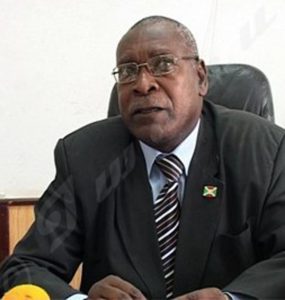
Philippe Nzobonariba ” The deployment of a foreign force is only intended to prepare the rear base of the terrorists currently routed.”
“The Government of Burundi rejects any provision of the resolution related to the deployment of any force on its territory.” In a statement signed by the spokesman and secretary general of the government on August 2nd, Philippe Nzobonariba reacted to the adoption of the resolution 2303 by the United Nations Security Council (UNSC) on the 28th July, 2016. On the basis of a proposal by France, this resolution authorizes the deployment of 228 UN police in Burundi for an initial period of one year. Bujumbura reminds the UNSC that any resolution adopted under Chapter 6 of the UN Charter must always have the consent of the country concerned. For Bujumbura, there is no reason to send any force. “Defense and security forces have full control of the situation within the national territory”.
For the government, “the deployment of a foreign force, seems only intended to prepare the rear base of the terrorists currently defeated.” In the process, this statement accuses Kigali and Paris of trying to destabilize Burundi. Rwanda is accused of harboring armed movements that attack Burundi. As for France, Philippe Nzobonariba recalls the 1994 experience in Rwanda when the “Operation Turquoise” initiated by France wasn’t beneficial at all for Rwandans with the genocide that ensued.
“It then becomes morally unacceptable that France seeks to export the experience of the Rwandan genocide to Burundi when the record of its probable responsibility in this tragedy is not yet emptied or the litigation with Rwanda closed”. For the Burundian government, it is out of the question that Burundi agrees to pay the cost of reconciliation between the two countries through the sacrifice of its people.
A necessary resolution…
The resolution 2303 was passed by 11 of the 15 members of the UNSC, including Russia thought to be an unconditional ally of Burundi. Delegates from Egypt, China, Venezuela and Angola abstained. The United Nations police component will be to monitor the security situation and to collect information on violations of human rights committed in the country. The Secretary General shall ensure a “progressive deployment” of the police component. On the 15th of April, the UNSC adopted the second of the three options that were presented, at the request of the Secretary-General. The other two called for the deployment of about 3,000 police officers with a mission of monitoring, or between 20 and 50 policemen responsible for an assessment mission. Bujumbura had accepted the latter, but did not consider it most needed.
“The adoption of this resolution is an important decision that marks a potentially decisive step for a return of peace in Burundi,” said the representative of France, referring to the genocide in Rwanda. “This time we will not wait for action to prevent a disaster,” added the representative of Malaysia.
Their US counterpart felt that this was not a high resolution but that the people of Burundi counted on the UNSC to act and help.
China, Russia, Angola, Egypt, and Venezuela stressed the need for a prior agreement of the Burundian government. Finally, several delegations, including those of Spain, said they would have preferred a unanimous adoption.
Reactions
The decision of this resolution by the UNSC provoked reactions, sometimes violent ones. Some have threatened to kill members of the UN force, and called for resistance.
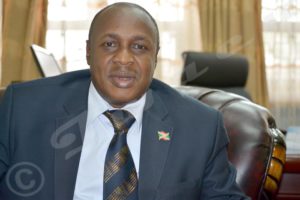 Initially, there was a demonstration staged by the government on Saturday July 30th, following the vote on this resolution to reject it and accuse France. A representative of the Interior Ministry, several MPs and the Mayor of Bujumbura had joined the demonstrators. They vowed to fight the UN police, if they land on the Burundian soil.
Initially, there was a demonstration staged by the government on Saturday July 30th, following the vote on this resolution to reject it and accuse France. A representative of the Interior Ministry, several MPs and the Mayor of Bujumbura had joined the demonstrators. They vowed to fight the UN police, if they land on the Burundian soil.
Other individual reactions preceded that of the government. “We would then request that the police officers that the UN wants to send on Burundian soil be only composed of French and Belgians. We need the French and Belgian girls and boys to come to die in Burundi”, said a leader of a civil society organization close to the government.
“The FNL party sees this as the beginning of sending peacekeeping forces “We reject outright this decision and we call on all the people to reject this aggression, this interference and resist against these forces”, insisted Jacques Bigirimana, president of FNL, another party close to the government. “The peacekeeping forces being proposed may give the same result as the ones we saw in Rwanda in 1994. Even today, the program of those Westerners misled by Burundian politicians in decline has no other objective than eliminating the head of state and for genocide to finally take place. ”
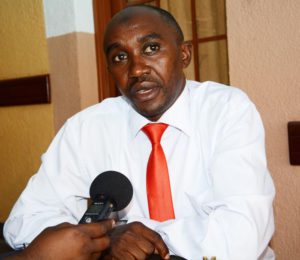
Jérémie Minani
Jeremie Minani, Commissioner in charge of communication and public relations within the CNARED opposition platform, welcomed the resolution, but with reservations. “Burundi does not need a force that comes to powerlessly observe the mass atrocities of Pierre Nkurunziza. CNARED always asked to send an African or UN force capable of protecting the people of Burundi in imminent danger. ”
“The mistake made in Rwanda that led to the genocide of the Tutsi minority, almost a million, can still be repeated elsewhere, even in Burundi. That is the reason why we stand up to ask France not to make the same mistakes it has already committed several times in Africa”, warned Jean de Dieu Mutabazi, chairman of RADEBU, also close to the government.
“Burundi’s security situation is better than the France’s.
Remember UNAMIR (The United Nations Assistance Mission for Rwanda) and the” Operation Turquoise”, if France thinks that this can happen in Burundi, it would better think again “, says Gaston Sindimwo, Burundi first deputy-president.
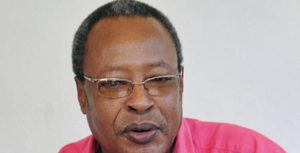 François Nyamoya, secretary general of the MSD party said: “We want to condemn the remarks against France launched by members of the CNDD-FDD party … Even as you criticize the policy of a state, you cannot mock or ignore the misfortunes of its people.
François Nyamoya, secretary general of the MSD party said: “We want to condemn the remarks against France launched by members of the CNDD-FDD party … Even as you criticize the policy of a state, you cannot mock or ignore the misfortunes of its people.
Many people died in France, killed by terrorists, families lost their own members. ”
No to resolution 2303 …And what’s next?
Short of arguments, the government today threatens to attack the UN police force once they land on the Burundian soil when it knows it cannot do it, since it would be challenging the world. Such a reaction would turn against the very government. It would be surprising if the UNSC kowtows to Bujumbura by reconsidering its decision, especially that there was another option to send 3,000 peacekeepers to Burundi. Meanwhile, on August 3rd, Quai d’Orsay had asked Burundian authorities to implement without delay the UNSC resolution 2303.
What to fear is the genocidal threat from the government if the 228 UN police officers arrive in Burundi. While the government swore that genocide is impossible in Burundi a few days ago, one wonders how it could be caused by these police officers. Reading between the lines, it would mean, as warned Jacques Bigirimana, these police officers would help assassinate the president of Burundi, which would trigger genocide. But then who would be the victims of genocide, and who would be the executioners?
Analysis
The reasons of the wrath of Bujumbura
The resolution 2303 of the Security Council was approved with difficulty. Hubris seems to characterize the reactions of supporters of Nkurunziza regime.
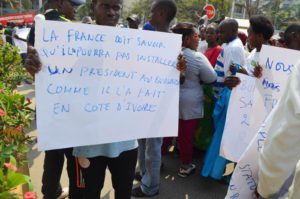
A demonstration was organized by the government, the day after the adoption of this resolution.
This “strong act of preventive diplomacy” of the UN Security Council aims to “prevent an escalation of violence” and its corollary in terms of serious and massive violations of human rights. The international community is aware that the current dynamics of repression against all suspected opponents of the regime inexorably led the country to relapse into civil war. The risk is so probable that there is already a heavily armed opposition against the third term of President Nkurunziza.
As for the regime of Nkurunziza, it believes that a force of this size –it wanted to limit it to 50 police officers- is the first step towards the sending of a much larger force to Burundi, ipso facto limiting the scope of the power of the regime. In this regard, note that the 228 UN police officers will be deployed throughout the national territory for an initial period of one year. Moreover, the mission could be modified in case of an escalation of the situation. Therefore, to Bujumbura, it is nothing more nor less than a trick of the international community to impose a “sovereign state of foreign occupation forces”, according to the official rhetoric.
Hence, the outrageous reactions of the presidential camp , in a demonstration obviously organized by the government the next morning against France, which has been maneuvering the vote for the resolution in the UN Security Council for several months.
Here are some of the writings on demonstrators’ banners: “France is more in need of peacekeepers than Burundi; more than 100 people were killed in Nice in a day. The 228 UN police will not tread on the soil of our homeland unless we are all dead! France must know that it cannot install a president like in Ivory Coast. France wants to send armed men to commit genocide as it occurred in Rwanda”, etc.
An inter-Burundian dialogue “genuine and inclusive”
The resolution 2303 emphasizes the intrinsic link between the UN police force and an inter-Burundian “genuine and inclusive” dialogue – a clear allusion to the unrestricted participation of CNARED, the main platform of the Burundian opposition. The dialogue will be, with the improvement of the security situation and progress in respect for human rights, one of the three criteria to adapt “the size, composition and mandate of the police component.”
The idea of repatriating the Arusha inter-Burundian dialogue is thus clearly mentioned. The UN police officers deployed on the Burundian territory would then provide security guarantees for the opposition in exile. The International Organization of French Speaking Countries (OIF), through its spokesman Louis Hartman, seems to support this new approach to solving the crisis in Burundi: […]
The important thing is that the international community should maintain pressure and send signals, as did the Security Council, to make Burundian authorities understand that it is very crucial to restore a truly inclusive dialogue, in a peaceful and safe environment.
The repatriation of the inter-Burundian dialogue, under the facilitation of former President Benjamin Mkapa, strongly antagonizes the Burundian government that hardly hides the orientation of the internal political dialogue: the revision of the Arusha Agreement and the Constitution from which it originated.
In principle, two internal processes of Inter-Burundian dialogue cannot coexist .One excludes the other.
“In this political-security equation at the international level, the reaction of the Security Council against the refusal of Bujumbura to implement the resolution 2303 remains unknown.”

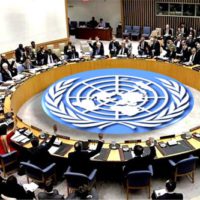
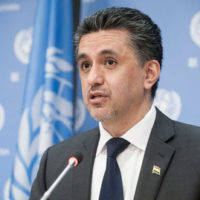
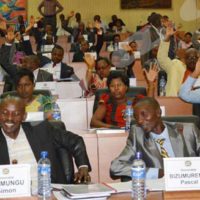













 IWACU Open Data
IWACU Open Data

